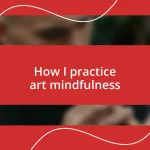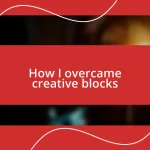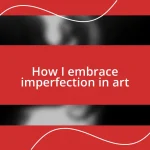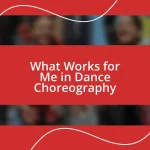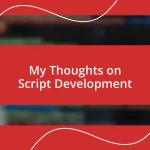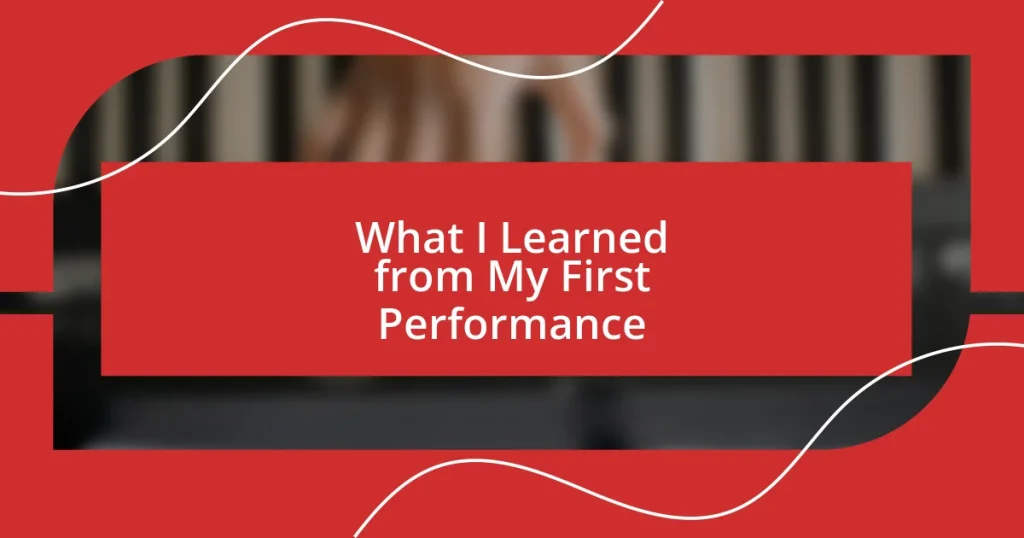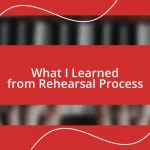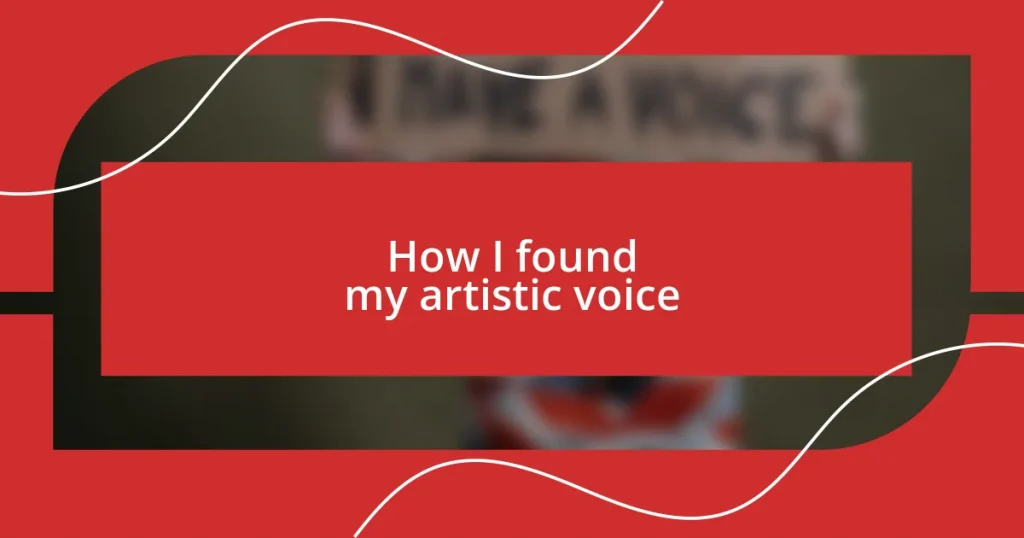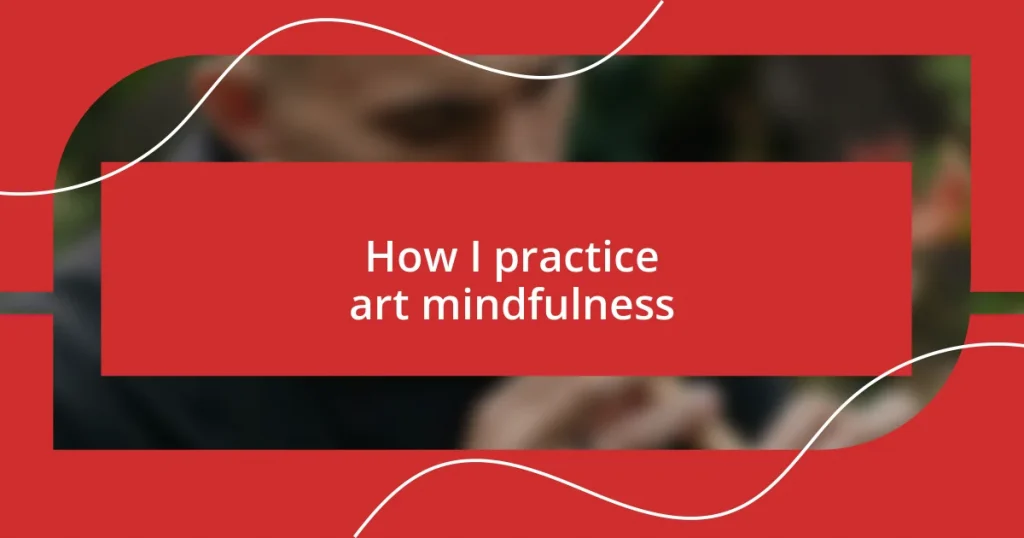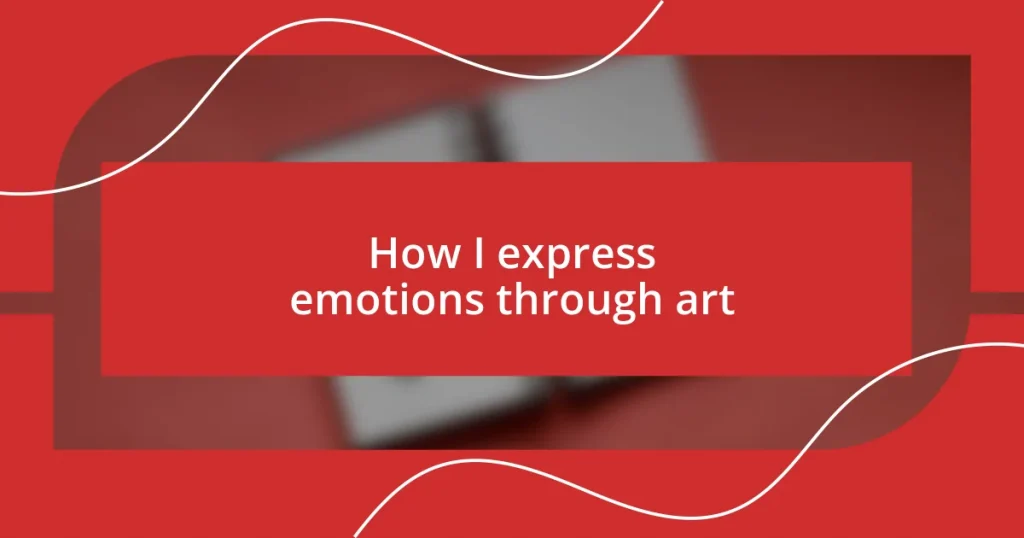Key takeaways:
- Embracing imperfections and overcoming performance anxiety fosters resilience, transforming fear into a source of strength.
- Consistent practice and rehearsal build confidence and muscle memory, allowing for creative experimentation and emotional connection during performances.
- Audience feedback is vital for growth, encouraging performers to adapt and enhance their acts while building an intimate connection with spectators.
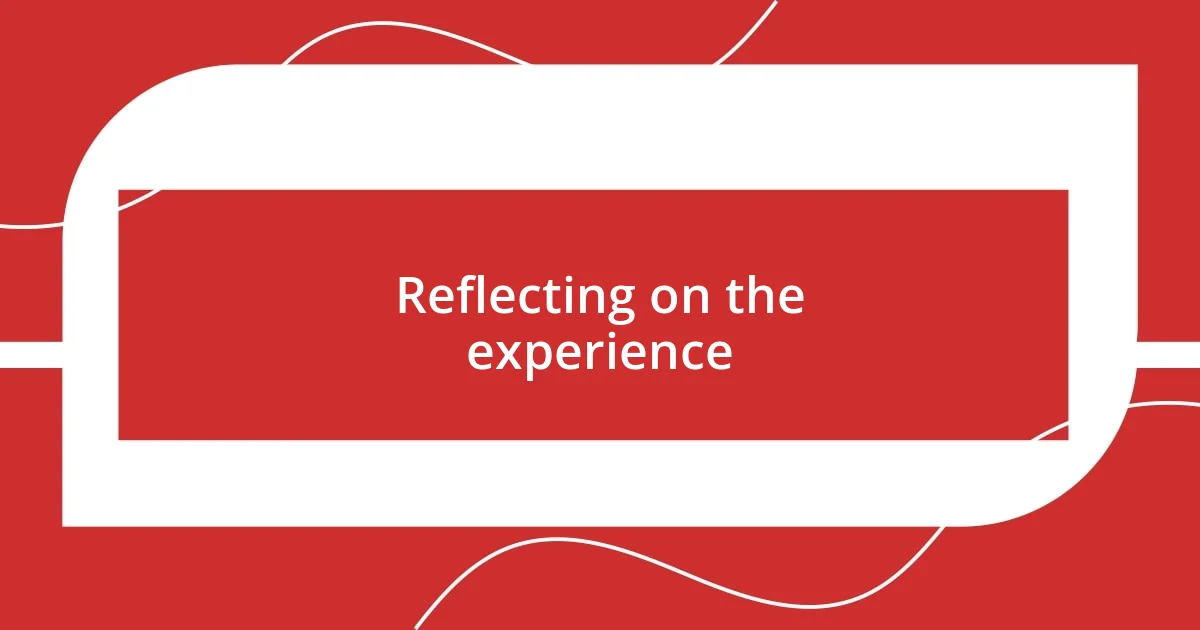
Reflecting on the experience
Reflecting on my first performance brings a whirlwind of emotions to the surface. I remember standing backstage, the faint hum of chatter and the electric buzz of anticipation colliding with my nerves. It made me wonder, how often do we let fear overshadow our passion? I felt that fear, but pushing through it led to a sense of accomplishment I never expected.
Looking back, I realize how crucial it was to embrace the moment, imperfections and all. I still vividly remember the unexpected stumble during my routine. At first, I was mortified, but I learned that sometimes, those little mishaps can create the most genuine connection with the audience. Doesn’t that teach us something valuable about resilience?
Now, when I think of that performance, I see it as a pivotal moment in my journey. Each time I step on stage, I pull from that well of experience. It reminds me that growth often comes from discomfort. Have you had a similar experience where an obstacle became a stepping stone? I think we all have those defining moments that shape our path, if we just take the time to reflect on them.
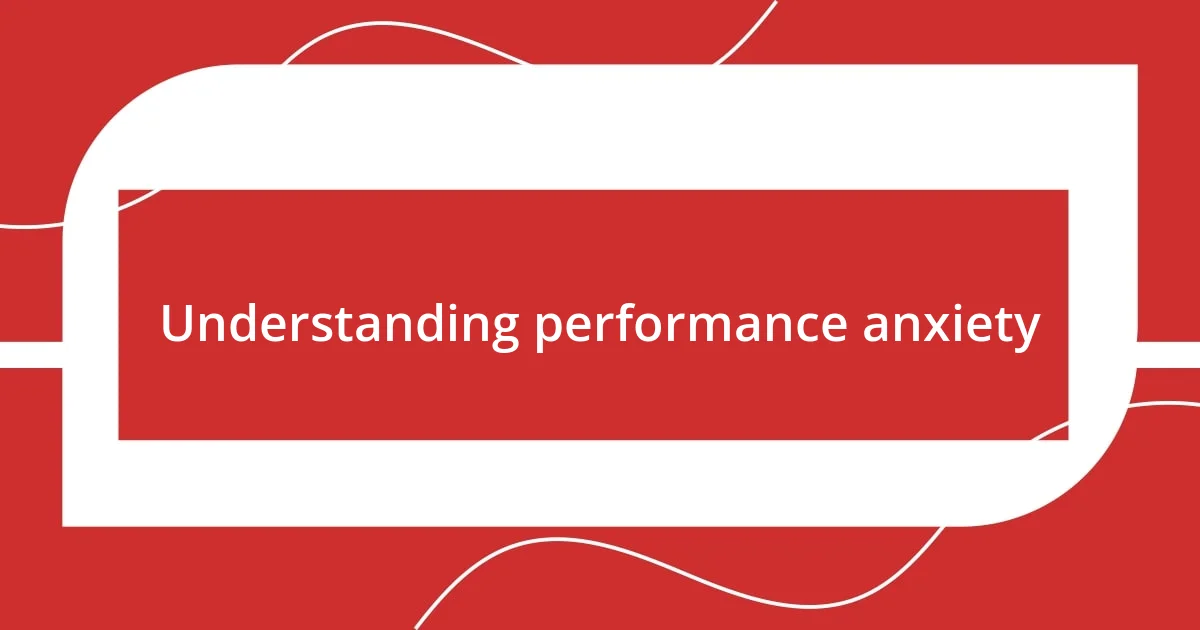
Understanding performance anxiety
Understanding performance anxiety can feel like navigating a maze filled with uncertainty. I distinctly recall standing in the wings before my first show, grappling with butterflies in my stomach. That sense of dread was almost palpable; it felt like a heavy weight pressing down on my chest. It’s fascinating how our minds can amplify fear, often making us believe we’re about to face disaster rather than an opportunity to shine.
The experience of performance anxiety taught me that it’s a universal challenge, one that even seasoned performers contend with. It’s important to recognize that this anxiety often stems from fear of judgment or failure. I remember my hands trembling before I stepped on stage, wondering if they remembered my rehearsal mistakes. I realized that accepting this anxiety as a natural response became a source of strength, allowing me to channel that energy into my performance instead of letting it diminish my confidence.
To truly combat performance anxiety, one needs strategies to manage those feelings. Deep breathing became my go-to tool; it calmed my racing thoughts and centered my focus. I’ve found that visualization techniques, where I would picture myself succeeding, also helped eliminate some of those jitters. Have you ever tried visualizing a successful moment to shift your mindset? I’ve come to understand that with practice, these strategies can turn a daunting experience into a powerful performance.
| Performance Anxiety Cause | My Experience |
|---|---|
| Fear of Judgment | I felt like all eyes were on me, waiting for my mistakes. |
| Physical Symptoms | My hands trembled, and my heart raced uncontrollably. |
| Overthinking | I constantly replayed every misstep in my mind. |
| Universal Challenge | Even experienced performers face similar fears. |
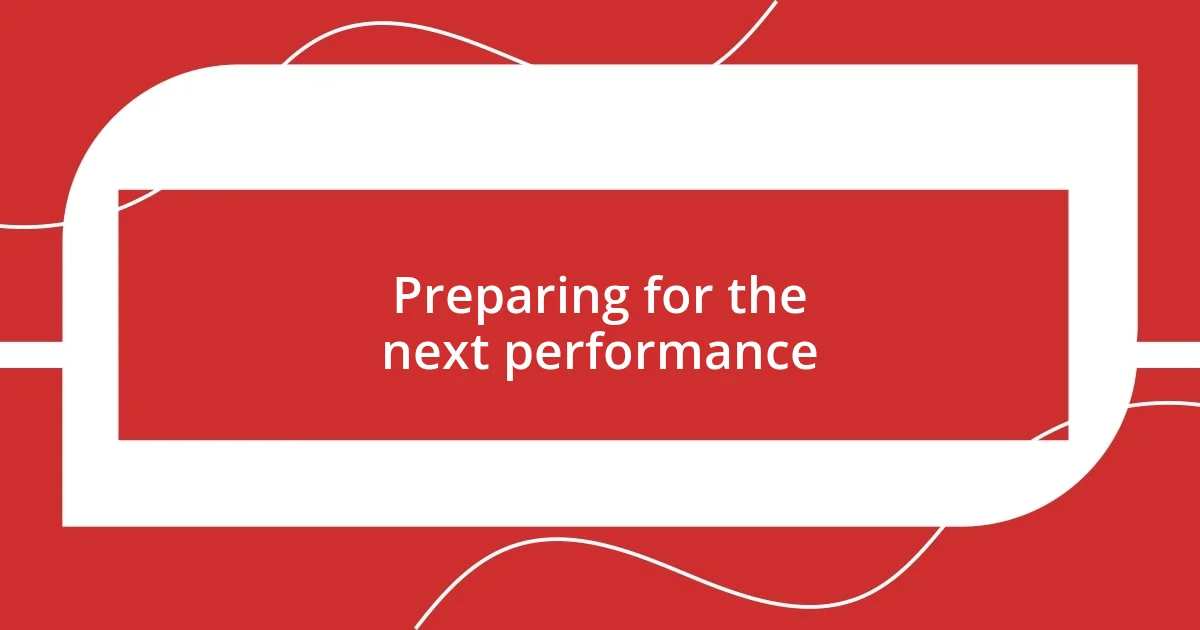
Preparing for the next performance
Preparing for my next performance has become a mix of excitement and strategy. After my first experience, I understood the importance of preparation—not just in rehearsing my material, but in preparing my mindset. I still remember the feeling right before stepping on stage; it was a unique blend of dread and thrill. Now, when I practice, I focus on building confidence through consistent repetition and engaging in positive self-talk.
To enhance my readiness for future performances, I’ve embraced a few key practices:
- Set Specific Goals: Instead of vague aspirations, I identify specific areas for improvement, like mastering a particular move or clarifying my expression.
- Rehearse in Different Settings: Practicing in various environments helps me to adapt to different audiences and unexpected circumstances.
- Connect with Fellow Performers: Sharing experiences with others has provided me with fresh perspectives and support, easing my nerves each time.
- Record My Practices: Watching my performances allows me to critique myself constructively and celebrate my progress.
These strategies have transformed how I prepare, shifting my mindset from dread to empowerment. Each practice session feels less like a chore and more like a vital step toward embracing the stage with confidence.
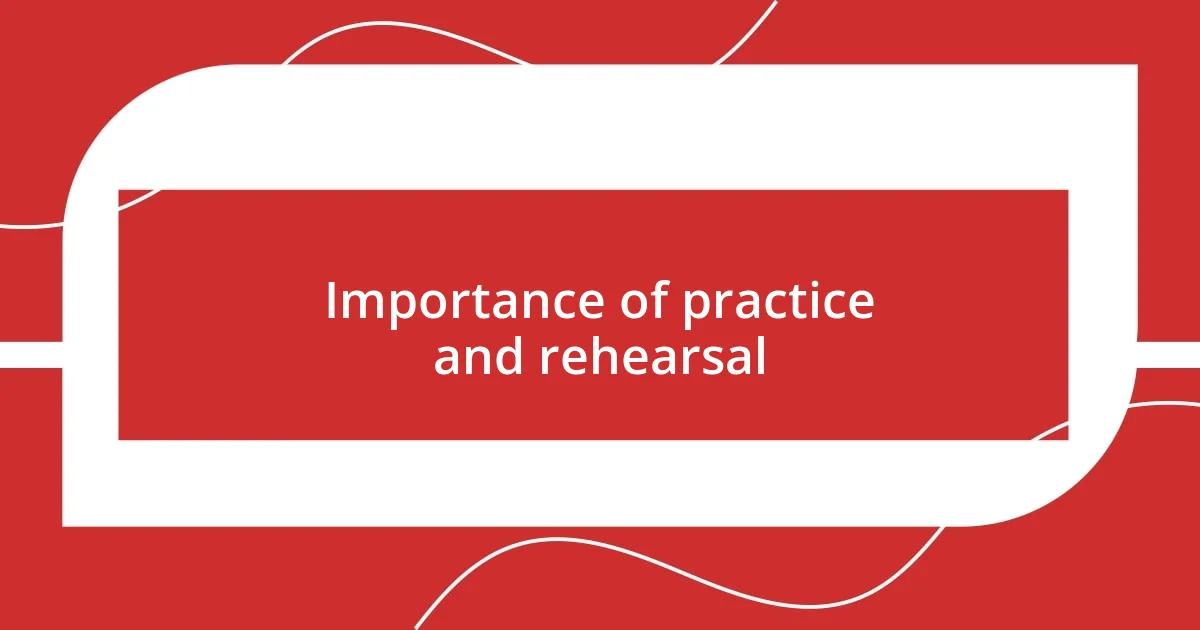
Importance of practice and rehearsal
Practice and rehearsal are the bedrock of any successful performance; I can’t emphasize that enough. I learned this the hard way after my first show, when I realized just how much my nerves almost derailed everything. I remember cramming before each rehearsal, but it felt different once I was actually on stage. That experience taught me that rehearsing is not just about going over lines or movements; it’s about building a muscle memory that allows you to perform with confidence, almost on autopilot.
I once had a rehearsal where everything seemed to click. It was as if the piece had finally found its rhythm. I could feel my energy flowing, and the music became a part of me—not something I was just playing. Have you ever experienced that magical moment when practice transforms into performance? It’s precisely this mix of practice intimacy and emotional connection that can turn a script into a powerful story. In those moments, I understood that practice is where the foundation of confidence is built, paving the way for a memorable performance.
Rehearsal also provides a safe space to experiment. I vividly recall a moment when I tried out an unexpected character choice that initially felt risky. Yet, that small gamble turned into the highlight of my act, much to my surprise! It’s essential to be flexible during practice; after all, how do we learn what works best without taking a few chances? For me, this realization opened the door to creativity, ensuring that by the time I stepped on stage, I felt not just prepared, but genuinely excited about sharing my performance.
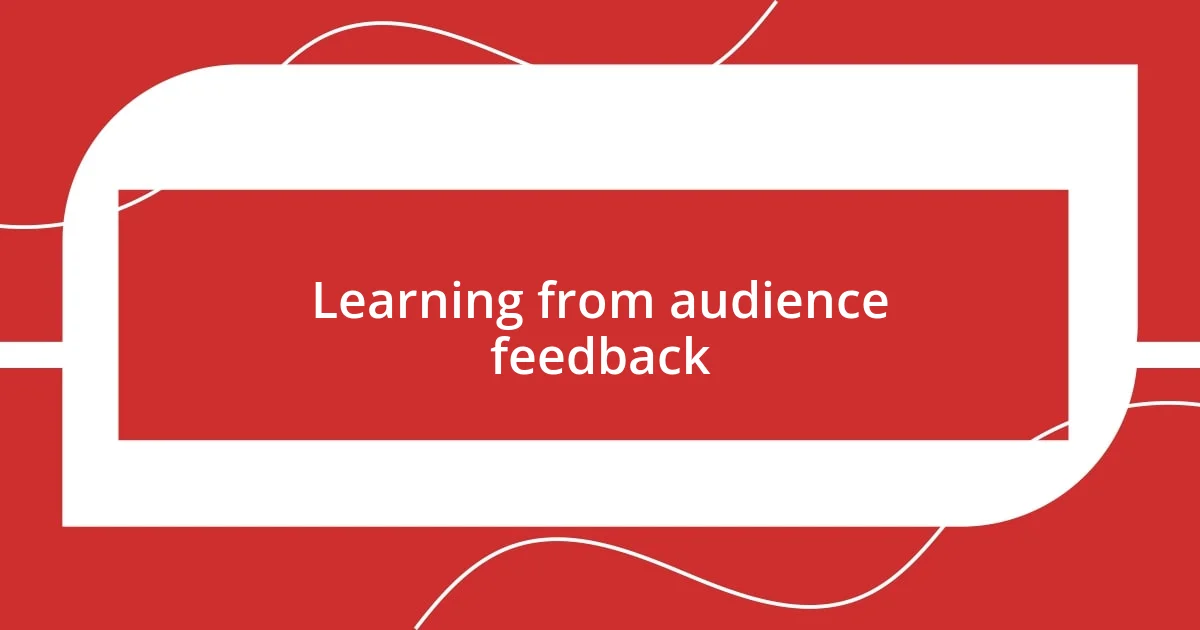
Learning from audience feedback
The feedback from the audience can be a powerful teacher, often illuminating aspects of my performance I hadn’t even considered. For instance, after my first show, a couple of audience members approached me and pointed out moments that resonated with them. While I was initially nervous about hearing their thoughts, their insights helped me understand what connected with people emotionally—those subtle gestures I thought went unnoticed actually made an impact. Have you ever received feedback that completely changed your perspective on your work?
Reflecting on those comments, I realized that audience responses are a key element of growth. There was a moment during my performance when I felt the energy shift, and I chose to lean into that. It was exhilarating, but I didn’t fully grasp its significance until later when someone highlighted how that choice brought an unexpected authenticity to my act. I began to appreciate the idea that audience feedback isn’t just about applause; it’s about the intimate dialogue that unfolds between performer and spectator.
Every performance now carries with it an opportunity for improvement, guided by those who watch from the other side of the stage. I’ve started incorporating feedback into my rehearsals, trying to enhance the moments the audience found most compelling. It’s amazing how this collaborative nature shifts my perspective; suddenly, I’m not just delivering a performance, but building a connection—and that’s where the magic happens. Isn’t it incredible how the input of others can transform our craft and elevate us beyond what we originally imagined?
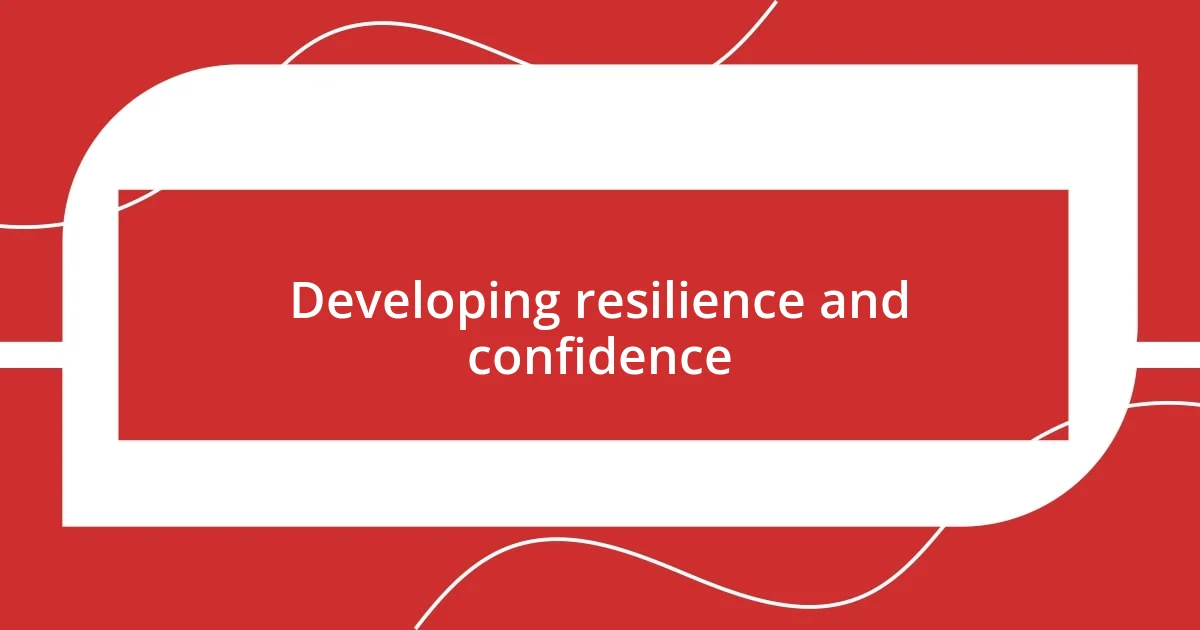
Developing resilience and confidence
Building resilience through performance is a journey that I truly cherish. I vividly recall a moment during my first show when everything didn’t go according to plan; a forgotten line left me momentarily paralyzed. But instead of letting that stumble define me, I took a deep breath, embraced the moment, and decided to improvise. That experience reminded me that resilience is about bouncing back and finding strength in vulnerability. Have you ever faced a setback that turned into a strength? It’s in those moments of uncertainty that I learned the true essence of confidence.
The blend of nerves and excitement before stepping on stage was an emotional rollercoaster. I remember standing backstage, feeling my heart race, but then I recalled all those rehearsals—the hours spent preparing. In that instant, I shifted my mindset from fear to focus. I told myself that confidence doesn’t mean the absence of fear; instead, it’s about channeling that energy into my performance. Have you found that transforming anxiety into excitement can amplify your presence? That shift was pivotal for me, instilling a sense of calm and assurance that stayed with me through each act.
As I look back, the journey from my first performance to now has taught me that confidence grows with each act. After every show, I took time to reflect not only on what went well but also on the challenges I faced. Each reflection reinforced my ability to lift myself up and try again, each experience adding a layer of confidence. It’s fascinating how each performance builds upon the last—like stacking blocks, with every success and failure shaping who I am as a performer. Haven’t you ever felt a sense of achievement after overcoming a fear? That’s the beauty of performance; it transforms us, crafting a path towards unshakeable resilience.
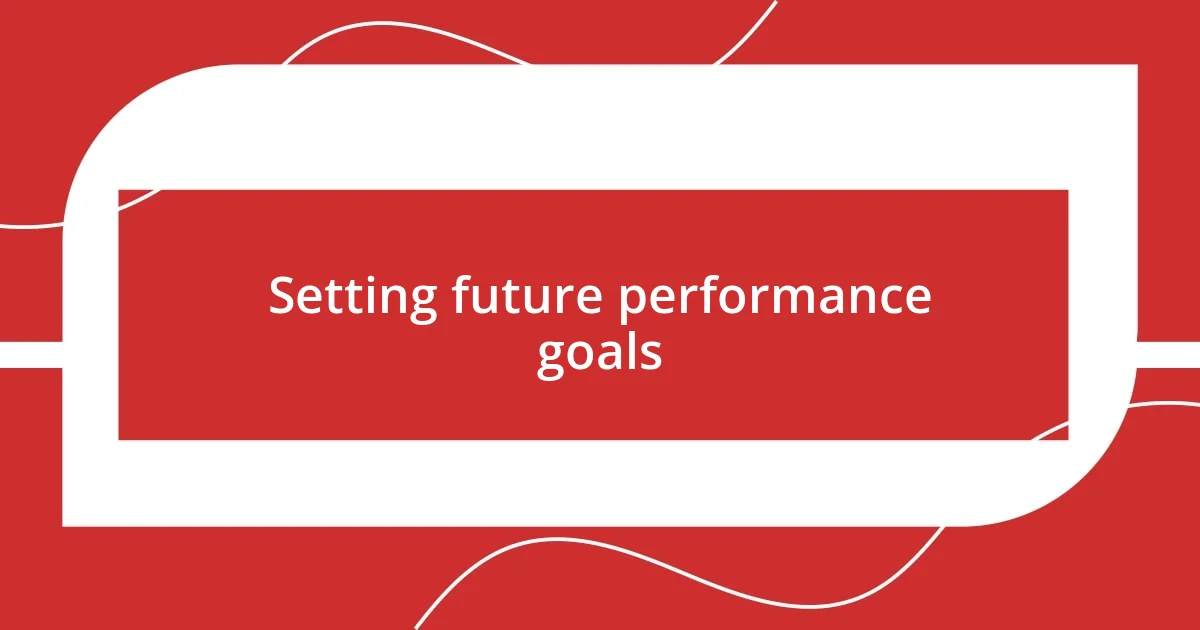
Setting future performance goals
Setting future performance goals is something I take to heart after each experience on stage. I remember the exhilaration of my first performance and realizing that I wanted to build on the momentum. I asked myself, what do I want to achieve next? That question sparked a desire to set specific, measurable goals, like expanding my repertoire or experimenting with new styles that challenge me. Have you ever felt that same drive to evolve?
I’ve learned that creating realistic goals keeps me motivated and focused. After my first show, I wrote down what I admired in performers I looked up to and identified aspects I wanted to incorporate into my work. This exercise not only clarified my aspirations but also gave me tangible steps to follow. It’s fascinating how the act of writing things down transforms a fleeting thought into a commitment. Have you ever found that putting pen to paper solidifies your intentions?
As I continue to evolve, I’ve also embraced flexibility in my goal-setting. I understand that not every goal needs a linear path; sometimes, I discover new interests that shift my direction. After one particularly rewarding performance, I felt inclined to join a local improv group. It unlocked a newfound creativity within me. How about you? Have you ever set a goal that took you in an unexpected but thrilling direction? Embracing these surprises has shown me that growth often happens outside my original plan, and that’s where the real magic lies.

